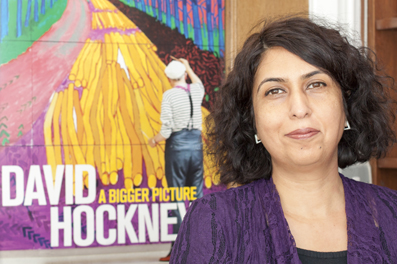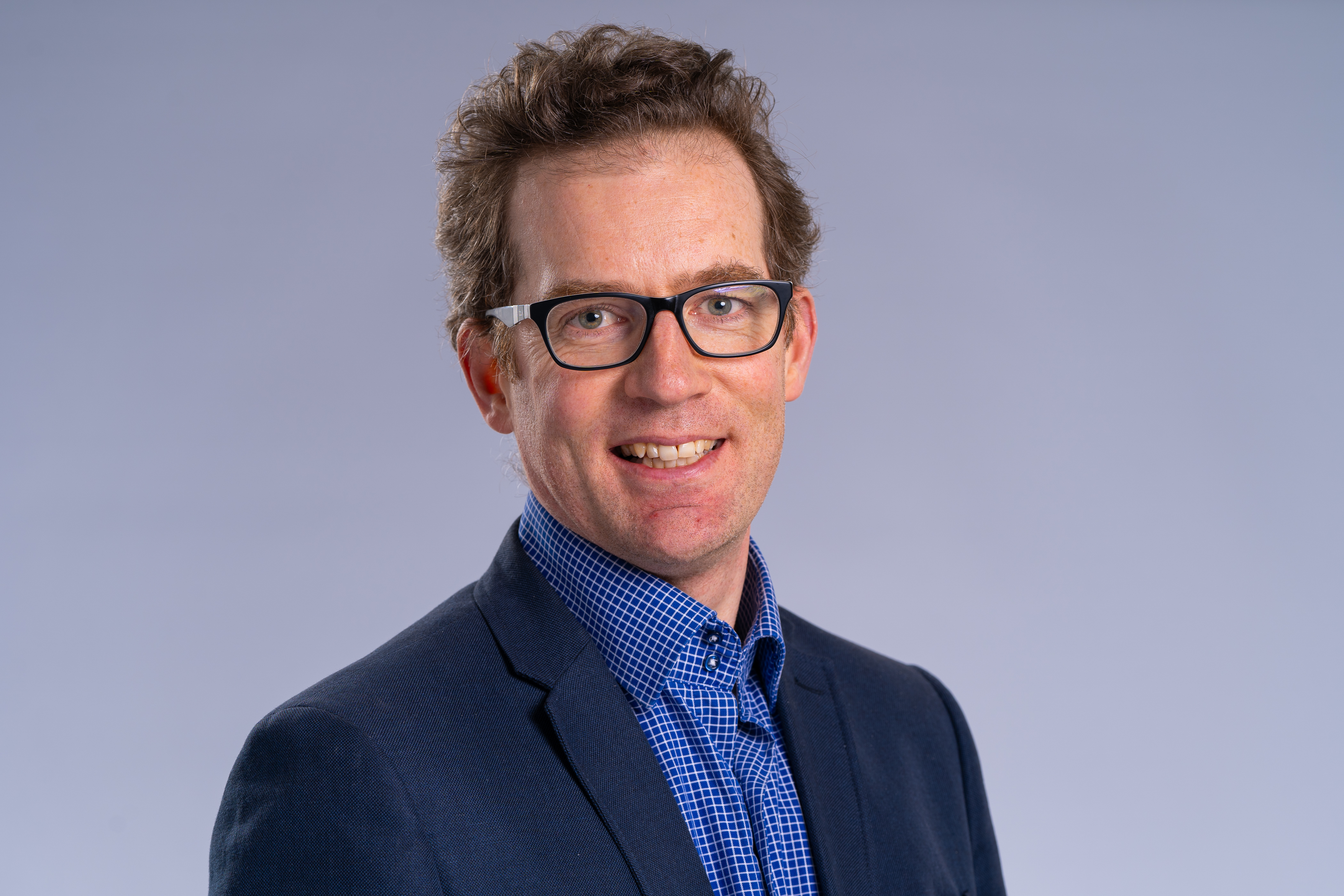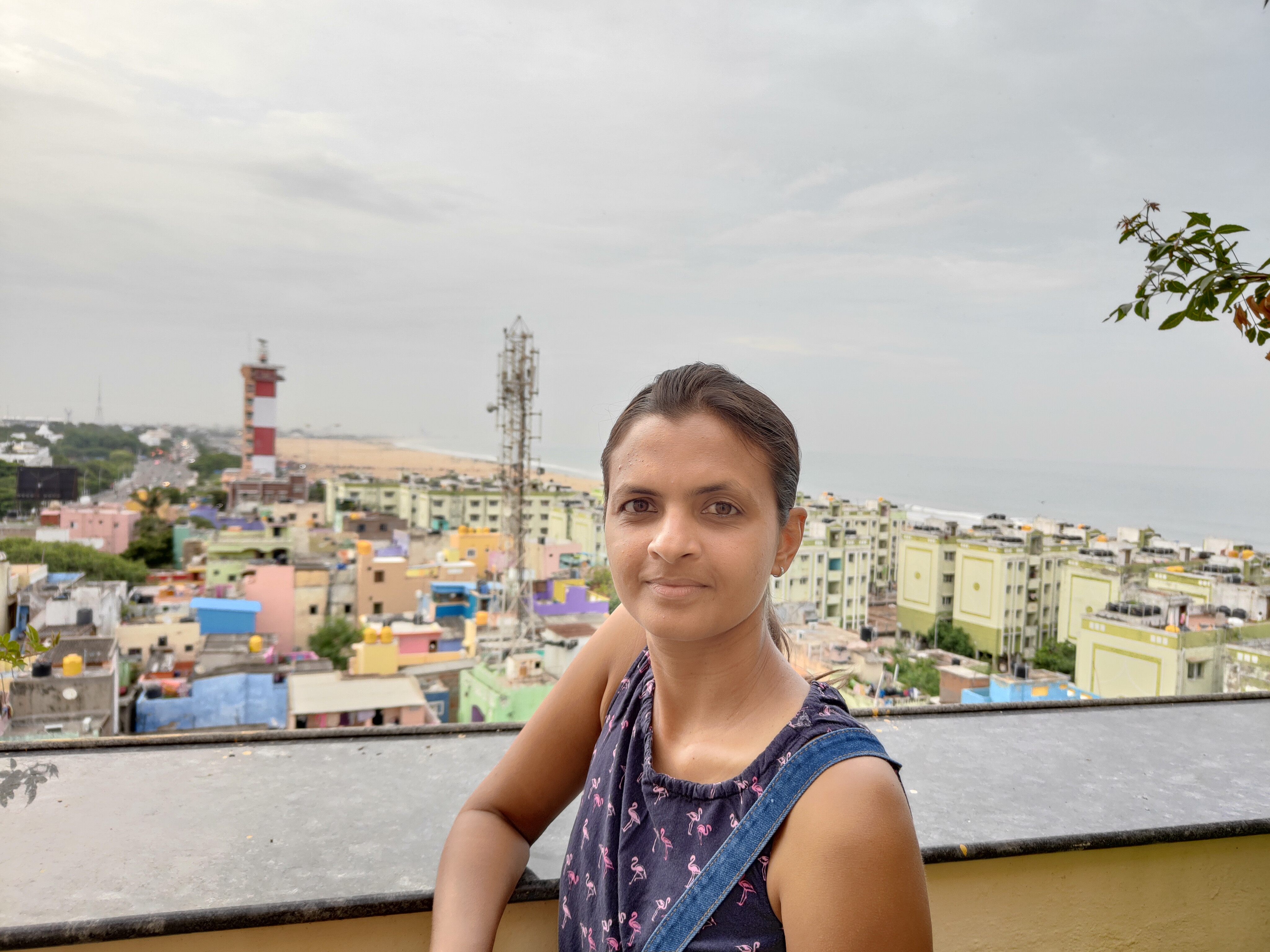Study options
- Starting in
- September 2025
- Location
- Mile End
- Fees
- Home: £12,250
Overseas: £25,500
EU/EEA/Swiss students
What you'll study
You will be encouraged to challenge the common use of Western historical experiences and categories. Instead, you will reconsider the diversity of populations, economies, urban centres, and governance practices in the Global South on their own terms – and in so doing, step outside the conventional lenses of mainstream development theory and the international policies they inform.
Your studies will encourage you to examine these realities in light of the contrasts and continuities between the Global North and South and critically assess the strengths and weaknesses of different theoretical approaches to studying international development futures.
You will also be able to develop your research skills and experiences by undertaking an independent research project and fieldwork. This will be supported by research training as well as one-to-one tailored supervision from experienced researchers.
You will have the opportunity to attend regular research seminars and research framework sessions with top-level academic researchers.
This programme also offers students the opportunity to undertake an unpaid graduate internship with London International Development Centre (LIDC) while studying. LIDC will take on up to four Masters students as interns per year.
Additional costs
- Your dissertation can include fieldwork conducted in the UK or overseas, and you would be responsible for the costs associated with this.
Structure
- 12,000-word dissertation
- Two compulsory modules
- Two or three elective modules
For full module information, please see the QMUL Module Directory.
Compulsory/Core modules
The purpose of the module is to provide master's level research training in human geography and related social science disciplines. The module therefore covers core understandings of key concepts and approaches to human geography and social sciences research; subject specific research and transferable skills; and qualitative and quantitative, subject specific methodological and presentation techniques. This module will equip students with the skills necessary to independently design and implement an extended piece of primary dissertation research.
-theorising global development provides the theoretical framework underpinning the modules for MSc Development and International Business and MA Global Development programmes. The module will: i) introduce to a range of mainstream, alternative and decolonial theoretical approaches to `D/development¿; ii) challenge the common positioning of the Global South as a place where theories flow to rather than from, and as a collection of places in need of external (Northern) development interventions; iii) expose the spatial limits of mainstream / 'universal' theories of development in geography developed through narrow engagements with formal spaces of advanced capitalist economies in the Global North; iv) recognize the vital and dynamic ways in which the development trajectories of people and places in global South and global North are mutually constituted. Students will develop their conceptual understanding through key themes such as critical global development, the intersections of environment and development, transformations in the economy and work and post development.
The dissertation should include: a) a set of research aims clearly relating the dissertation and its aims to the relevant field of enquiry, b) a review and synthesis of previous studies and of the relevant theoretical, epistemological and methodological literature relating to the dissertation's field of enquiry and an examination of the place of such studies within the field of human geography; c) an examination of the study's research question(s) by means of analysis of new empirical material and/or original analysis of existing non-academic sources; and d) a full and critical discussion of methodology, research design and implementation.
Elective modules
This module explores theoretical, empirical and policy dimensions of patterns and processes of migration and mobilities in a global context and consciously across the global North/global South 'divide' from a scalar, relational and networked perspective. Although the focus will be on the nature and dynamics of contemporary movement of people, the module will also incorporate an analysis of the movement of information, goods and capital as framed within the 'new mobilities paradigm'. Theoretically, the module analyses the key framings of contemporary migration in relation to transnationalism, diaspora and post-national citizenship. In turn, it will interrogate the nature and links between transnationalism, multiculturalism and/or integration; the migration-development nexus; the politics of irregularity and 'illegality'; the relationships between the emergence of global cities and a migrant division of labour; the nature of global gendered mobilities and power and mobility as well as the interrelations between conflict, violence and mobility.
The module explores the economic-development geographies of people's everyday struggles to make a living in the contemporary global economy. Drawing on research within and across the Global North and Global South, this module engages with an exciting 'labour geographies' research agenda, concerned with how workers are capable of fashioning the geography of capitalism to suit their own needs and self-production; and to identify geographical possibilities and labour market strategies through which 'workers may challenge, outmaneuver and perhaps even beat capital' in different locations. The module seeks to expose the spatial limits of mainstream 'universal' theories in geography which presume that 'the economy' and 'labour' can be theorised solely from the perspective of the formal spaces of advanced capitalist economies in the global North.
This module offers the opportunity to develop advanced knowledge of an area of research through self-directed reading. In order to take this module, students must identify an area of interest that can be supervised by a member of the teaching team. The module is assessed by a 4000-5000 word paper that demonstrates advanced engagement with their chosen field of study. If supervision of the topic is agreed, students complete self-directed reading at an advanced level and discuss their readings and develop their paper at fortnightly supervision meetings. The structure of the report may vary according to the nature of the topic, and this is reflected in the word count range provided. Human Geography topics are expected to produce longer papers (up to 5000 words) while topics in Physical Geography and Environmental Science are likely to produce shorter papers (up to 4000 words) that may incorporate figures and data in certain circumstances.
This course aims to provide a critical overview of the theory and practice of two of the crucial 'end' stages of the policy process: delivery and evaluation. The module will examine how governments and public agencies around the world have sought to upgrade their delivery and evaluation capacity in recent decades. Lectures will be given by staff and leading practitioners who have front-line experience and knowledge. The course will explore the development of theoretical and empirical academic literature and provide opportunities for students to apply this material to selected case studies relevant to the group. Practitioners will be encouraged to reflect on their practices and experiences.
The module provides students with a detailed examination - and critique - of theories of globalisation and assessment of contemporary globalising processes, and how these particularly influence the developing world. It examines these influences through detailed analysis of contemporary manifestations of globalisation, including neo-liberalism, US hegemony and contemporary imperialism, capital flows, global commodity chains, state-market relations, patterns of global inequality, international institutions, and questions of cultural homogenisation/imperialism. The module also examines the ways in which globalisation is resisted, focusing on the rise of transnational social movements and NGOs, and the politics of anti-globalisation, and how this relates to an ostensibly post-development era. In addressing these issues, the module concludes by asking the most important question: how do we think of development in an era of globalisation, US hegemony, neo-liberalism and imperialism?
This module will provide an advanced examination of International Organisations (IOs) as a transnational political workspace for both cooperation and contestation between global actors. The module will be grounded in a historical and critical examination of the development of IOs in the 19th century as a tool to manage European international order, and it will emphasize the ways in which IOs developed in conjunction with the modern state. Building upon this critical grounding, the module will examine today's IOs, with a particular focus on the UN system, and their effectiveness in confronting global challenges in the 21st century. The module will conclude with a capstone day-long Model UN simulation.
The module will provide a set of skills that will enable participants, through a series of taught activities, to enhance research that focusses upon powerful institutions, namely governmental organisations and profitmaking corporations. It will introduce students to a range of innovative methodological techniques capable of generating novel data. The module will instruct students to uncover hidden aspects of the ways that powerful organisations `talk¿ and `act¿ in order to produce original case study materials.
Assessment
- 50% Modules
- 50% Dissertation
- Assessment on each of the modules is through a variety of coursework assignments ranging from extended essays to reviews
- You will complete a 12,000 word dissertation. An academic supervisor from the School of Geography will provide guidance and advice
Dissertation
Examples of past projects include:
- Exploring the everyday presence of precarity in the lives of young UK graduates
- Ethnography of Corruption in Lahore, Pakistan
- Organising, Resistance, Taking Up Space: Black Diaspora Connectivity in Digital Spaces
- Exploring the Everyday Presence of Precarity in the Lives of Young UK Graduates
- The Impact of Decentralization on Development: A Case Study of the Maldives
- An Ethnography of Corruption in Lahore, Pakistan
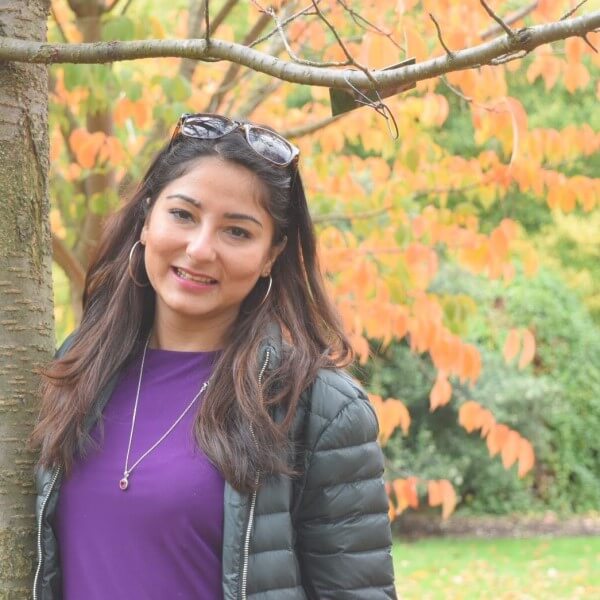
—The modules were structured in a way that provided a theoretical grounding in each subject, following which we were free to conduct research on that subject in any part of the world. Such a fluid structure allowed me to really study all kinds of developmental concerns in a number of different geographical contexts, thereby enabling me to expand my perspective. This knowledge has helped me upon my return to Pakistan.
Bismeh Shafi, MA Global Development (2020)
Teaching
Teaching for all modules includes a mixture of formal lectures and small group seminars. You will receive tailored research supervision and training as you prepare an independent research project for your dissertation.
In the 2024 Postgraduate Taught Experience Survey (PTES), 100% of our students agreed staff were good at explaining things and enthusiastic about what they were teaching. 93% of students agreed their research skills had developed during their course and 87% felt better prepared for a future career as a result of their course.
If you choose to study part-time, the number of modules you take is reduced per semester. The full number of modules you need to complete the programme will be spread over two academic years.
Find out more about the School of Geography’s inclusive approach to learning, co-created with our diverse student body, enhanced by our world-leading research.
Where you'll learn
Facilities
- Use dedicated Masters study and computing spaces within the School of Geography.
- Access specialist qualitative, quantitative, and GIS computing software to support your learning and research.
- Access an unparalleled range of learning resources, special collections, and world-leading libraries within QMUL and the University of London, such as the QMUL Library and Senate House Library. Other specialist collections are accessible nearby, for example at the British Library.
Campus
Teaching is based at Queen Mary’s main Mile End campus, one of the largest self-contained residential campuses in the capital. Our location in the heart of London’s East End offers a rich cultural environment.
Queen Mary have invested £105m in new facilities in recent years to offer our students an exceptional learning environment. Recent developments include the £39m Graduate Centre, providing 7,700 square metres of learning and teaching space.
The campus is 15 minutes by tube from central London, where you will have access to many of the University of London’s other facilities, such as Senate House.
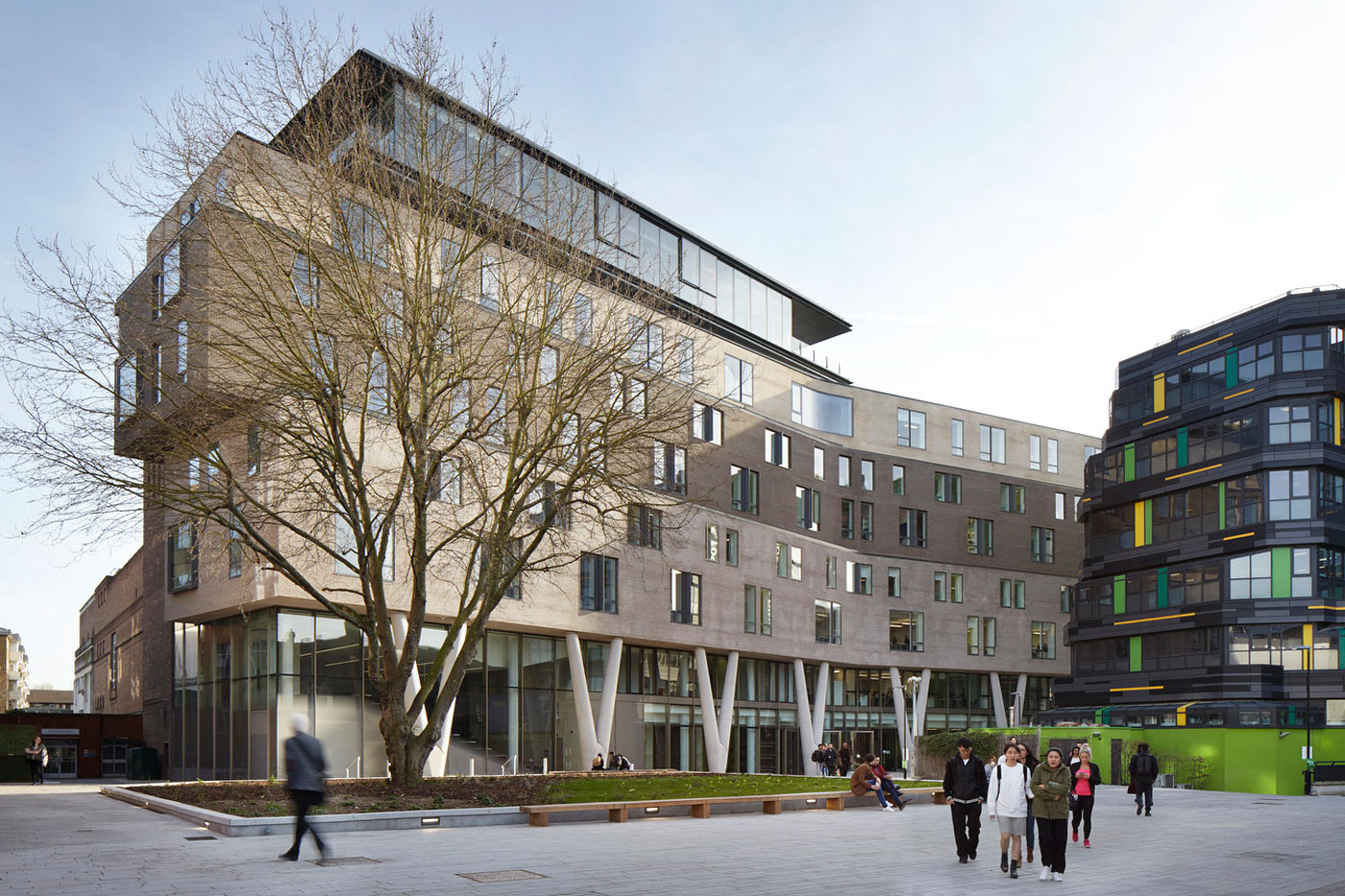
About the School
School of Geography
Geography has been taught at Queen Mary since 1894, making us one of the longest-established schools of geography in the UK. Today, we are one of the leading centres for Geography, Environmental Science and Global Development scholarship in the world.
We were positioned 7th overall for the quality of our research in the latest UK nation-wide research rankings and 92% of our research was assessed as internationally excellent or world-leading (Research Excellence Framework 2021). The latest QS World University Rankings by Subject (2023) places us in the top 100 geography schools in the world.
Set in the heart of one of London’s most vibrant and diverse areas, the School is ideally placed for studying the capital’s people, places, cultures and environment, as well as being a global hub for geographical expertise. We have a culturally diverse and inclusive postgraduate community, with students drawn from 35 countries around the world in 2022.
We pride ourselves on our close research and teaching links with external partners including the Environment Agency, the Museum of the Home, the British Museum, Citizens UK and Natural England.
Career paths
The programme will prepare you for a broad range of careers but will specifically deliver the research skills and substantive knowledge required by NGOs, development organisations, national government departments and academic research roles.
We integrate careers support into all of our degree programmes to help you to maximise your potential and achieve your ambitions.
Graduates have gone on to undertake PhDs, as well as working in consultancy, business development, as research executives, marketers and in project management.
Explore what our recent students have done after graduation and how their time studying on this programme prepared them for their career.
—My journey at Queen Mary University has been wonderful. My Global Development studies have shaped my academic approach to matters about our global landscape and have got me closer to fulfilling my dream of working in a not-for-profit organisation that champions humanitarian matters, i.e., United Nations, UNICEF, etc.
Elizabeth Matambo, Global Development MA
Fees and funding
Full-time study
September 2025 | 1 year
- Home: £12,250
- Overseas: £25,500
EU/EEA/Swiss students
Unconditional deposit
Home: Not applicable
Overseas: £2000
Information about deposits
Part-time study
September 2025 | 2 years
- Home: £6,150
- Overseas: £12,750
EU/EEA/Swiss students
Unconditional deposit
Home: Not applicable
Overseas: £2000
Information about deposits
Queen Mary alumni can get a £1000, 10% or 20% discount on their fees depending on the programme of study. Find out more about the Alumni Loyalty Award
Funding
There are a number of ways you can fund your postgraduate degree.
- Scholarships and bursaries
- Postgraduate loans (UK students)
- Country-specific scholarships for international students
Our Advice and Counselling service offers specialist support on financial issues, which you can access as soon as you apply for a place at Queen Mary. Before you apply, you can access our funding guides and advice on managing your money:
Entry requirements
UK
Degree requirements
A 2:1 or above at undergraduate level in a relevant subject.
Other routes
Candidates that do not currently meet the set entry requirements may also have the option to study the Graduate Diploma in Humanities and Social Sciences. Meeting the required grades on completion of this programme will provide a pathway to study MA Global Development.
Find out more about how to apply for our postgraduate taught courses.
International
English language requirements
The English language requirements for our programmes are indicated by English bands, and therefore the specific test and score acceptable is based on the band assigned to the academic department within which your chosen course of study is administered. Note that for some academic departments there are programmes with non-standard English language requirements.
The English Language requirements for entry to postgraduate taught and research programmes in the School of Geography falls within the following English band:
Band 4: IELTS (Academic) minimum score 6.5 overall with 6.0 in each of Writing, Listening, Reading and Speaking
We accept a range of English tests and qualifications categorised in our English bands for you to demonstrate your level of English Language proficiency. See all accepted English tests that we deem equivalent to these IELTS scores.
Visas and immigration
Find out how to apply for a student visa.


